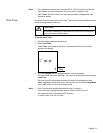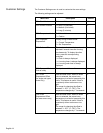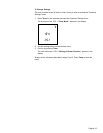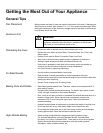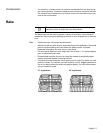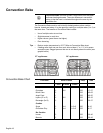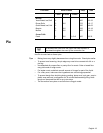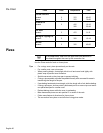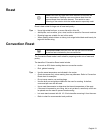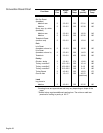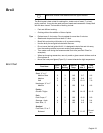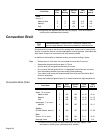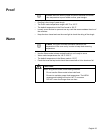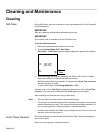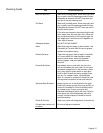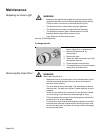
English 21
Roast
Roast is best suited for large cuts of meat and poultry.
Tips: • Use a high-sided broil pan, or cover dish with a lid or foil.
• Add liquids, such as water, juice, wine, bouillon or stock for flavor and moisture.
• Roasting bags are suitable for use in this mode.
• When roasting whole chicken or turkey, tuck wings behind back and loosely tie
legs with kitchen string.
Convection Roast
The Convection Roast mode is well suited for preparing tender cuts of meat and
poultry.
The benefits of Convection Roast mode include:
• As much as 25% faster cooking than non-convection modes.
• Rich, golden browning.
Tips: • Use the same temperature as indicated in the recipe.
• Check doneness early, since roasting time may decrease. Refer to Convection
Roast chart for examples.
• Do not cover meat or use cooking bags.
• Use the broil pan and grid provided with the oven for roasting. A shallow,
uncovered pan can also be used.
• Use a meat thermometer to determine the internal temperature of the meat.
• If the meat is browned to your liking, but is not yet done, a small strip of foil can
be placed over the meat to prevent overbrowning.
• Let meat stand covered with foil 10–15 minutes after removing it from the oven.
• Refer to chart for recommended rack positions.
t
Roast uses both the upper and lower elements to maintain the
oven temperature. Roasting uses more intense heat from the
upper element than the lower element. This results in more
browning of the exterior while the inside remains especially moist.
á
Convection Roast uses heat from the top and bottom elements
as well as heat circulated by the convection fan.



